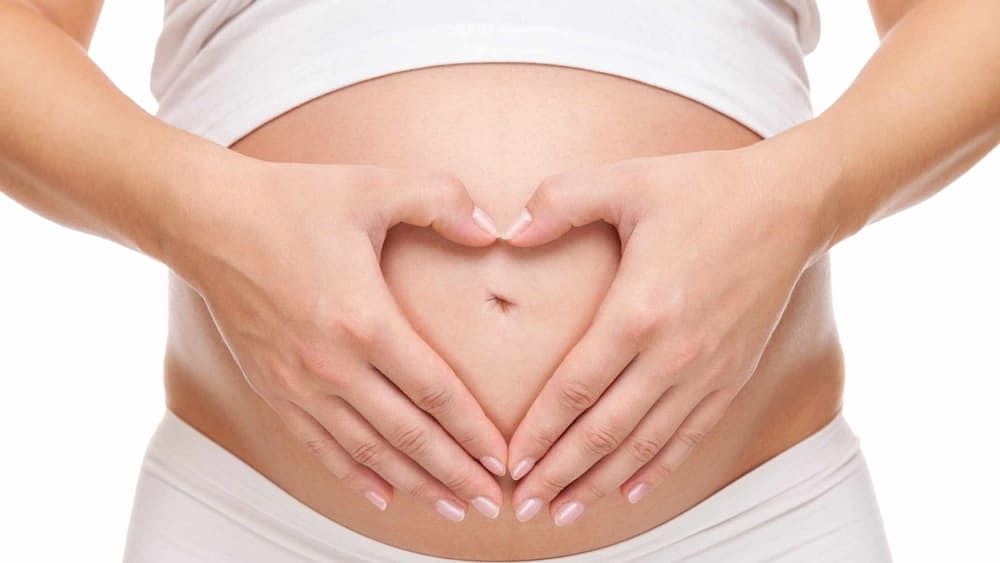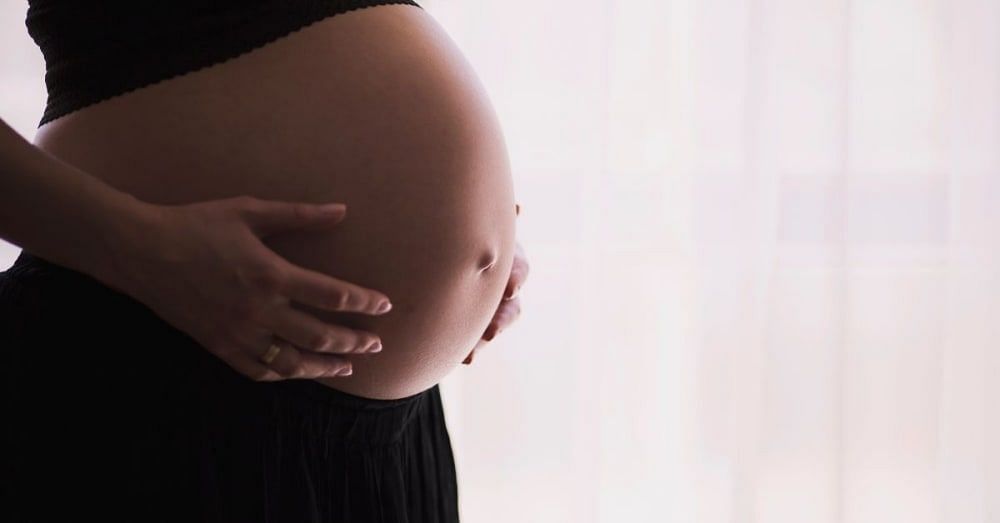PCOS is a Lifestyle problem which affects 1 in 7 women, according to gynecologists endocrinologists and infertility specialists.
A problem that's typically associated with irregular or scanty periods, Polycystic Ovarian Syndrome (PCOS) can have a huge impact on fertility, ovulation and hormonal functioning. It remains to be one of the leading causes of infertility and many struggle conceiving because of their unpleasant diagnosis. What's rather scarier is bleak awareness. Many women only learn of the problem when they face trouble getting pregnant naturally, and have to seek additional help.
Even though PCOS can make it difficult for ovulation to happen, the big question remains, can a woman get pregnant with PCOS? Is natural conception possible?
PCOS symptoms
- Women with PCOS often also experience weight gain.
- Unwanted facial or body hair growth, hair loss from the head, acne, and mood changes.
- These symptoms are thought to be linked to excess androgen—or male—hormones.
- Women with PCOS often also have increased levels of insulin, which may be linked to weight gain.
- you have at least two of the following criteria, you might have PCOS:
- History of irregular or no periods.
- Increased testosterone (as determined by lab tests or physical characteristics like excessive body or facial hair).
- Evidence of polycystic ovaries (as determined by ultrasound imaging).
If you have been diagnosed with PCOS and have been facing trouble conceiving, here is a handy guide which could answer your questions.
PCOS is a condition which causes excess production of male hormones (androgens) in the body, which can pose problems.
While women with PCOS can conceive, they face more problems than other women. One of the prime reasons being, irregular menstruation, which reduces the chances of ovulation.
Another factor which can trigger problems is obesity. Since women with PCOS tend to be put on weight, excess weight can make it difficult for a woman to conceive.
Apart from this, women with PCOS are also at a higher risk for problems like
- Type 2 and gestational diabetes
- Taking a longer while to conceive
- Health risks during pregnancy
Even though a little difficult, women with PCOS actually go on to have the same number of children as other women. However, the journey to getting pregnant can be a little lengthier, or often requires assistance.
That being said, there are ways women struggling with PCOS can boost their chances of getting pregnant, naturally.
How to get pregnant with Pcos naturally
Manage weight gain to get pregnant with PCOS naturally
Weight loss is one of the ways to increase chances of conception. Since extra weight can lead to inflammation and induce stress on the body, managing your weight and BMI (Body Mass Index) can regularize menstruation and help you have a baby. Seeking advice from a medical professional, or maintaining vitals as per your age can help you get started. Studies suggest that even a 5-10% reduction in weight can promote ovulation and make it easier for the body. However, it's not a permanent solution for fertility issues.
Exercise to get pregnant with PCOS naturally
Regular physical activity can beat the ill-effects of a sedentary lifestyle and manage weight gain. It can also counter stress, which can be bad for conception. Simple activities like walking regularly, weight training or cardio can promote fat loss and muscle gain.
Eat healthy to get pregnant with PCOS naturally
Diet is also said to have a beautiful impact for those struggling to conceive with PCOS. Even though there isn't something like the 'Pcos diet' for reversing PCOS, following a low-carb diet with heavy proteins can help. Food groups like nuts and seeds, vitamins like B12, D, folate, iron, omega-3 (which is a natural fertility booster) should be had plenty. Quitting dairy, which is said to impact gut sensitivity may also prove helpful.
Controlling blood sugar levels to get pregnant with PCOS naturally
PCOS is linked to insulin resistance and can trigger diabetes, which again, is a risk factor for conception. Controlling and managing blood sugar levels may bring a change in your health.
Control Stress to get pregnant with Pcos naturally
Some women also benefit from trying out natural therapies like yoga, meditation, acupuncture.
PCOS is one of the most common contributing factors responsible for infertility. However, natural conception is possible. Making changes to your diet and lifestyle are some of the simplest ways to boost your odds. Women with PCOS who have a healthy weight are more likely to get pregnant than those who aren't. If you control your lifestyle problems, getting pregnant won't be a struggle for long. Expert guidance can help you make the right decisions and get your health on the right track.
Like any medical problem, the earliest intervention makes way for timely help and treatment. Having a baby with PCOS is tricky, but not impossible. A little help from a guiding doctor, making lifestyle changes and controlling weight can go a long way in promoting fertility and good health.
Frequent intercourse, managing stress levels and last of all, being optimistic will help you conceive and have a baby of your own.
Consider seeking help if you face conceiving naturally six months after trying naturally. If you get very few periods in a year or have heavy bleeding, or are over 30, consulting a doctor can prevent problems.
PCOS and ovulation signs
The average woman in her mid-30s has a handful of follicles that contain egg cells in each ovary during her menstrual cycle. The brain secretes follicle stimulating hormone (FSH) to help select one of these follicles to mature and then release an egg.
But for women with PCOS, these follicles do not mature and ovulation doesn't happen. Instead, they accumulate, and women with PCOS can have at least a dozen in their ovaries. Without ovulation, there can't be conception.
Here are some of the ways our doctors test for ovulation or Fertility options with pcos
Basal body temperature (BBT)
You will chart your temperature as soon as you wake up every morning. Approximately two days after ovulation, women experience a sustained basal body temperature (BBT) increase of about .5 degrees Fahrenheit. Most women ovulate in the middle of their cycle (about the 14th day), although every woman is different. If your BBT does not increase during the time between the first day of your period and the first day of your next period, it could mean you did not ovulate.
Urine luteinizing hormone (LH) testing
You will test your urine in the middle of your cycle for an LH surge using a one-step over-the-counter ovulation predictor kit. Ovulation usually occurs 24 to 40 hours after you see the color change on the predictor test, meaning your LH has risen.
Transvaginal ultrasound
A technician will perform this test in the middle of your cycle, prior to when ovulation typically occurs. This imaging test is used to confirm the presence of a dominant follicle (ovarian cyst with an egg inside). Using this image, your doctor can also measure the thickness and pattern of the uterine lining at this time.
Progesterone level
Progesterone is a hormone that increases significantly in women only after ovulation occurs. This is a simple blood test that you would undergo about one week after the middle of your cycle.
Ovarian reserve testing
A woman is born with all the eggs she will ever have. As a woman ages, her eggs may become less viable (able to produce a pregnancy). Ovarian reserve refers to the ability of the eggs remaining in a woman’s ovaries at a given age to produce a viable pregnancy. This “reserve” decreases with age. The most common tests to evaluate ovarian reserve are:
Basal FSH, estradiol: A single blood test that is performed between days two and four of your menstrual cycle. We routinely use this test.
Clomiphene citrate challenge test (CCCT). A test involving the use of clomiphene citrate with two blood test measurements taken on day three and day ten of the menstrual cycle. This will identify ovarian dysfunction. We use this test less commonly.
Basal antral follicle (BAF) count. In this test, a technician performs a transvaginal ultrasound to count the number of small follicles (cyst with egg inside) available for stimulation at the beginning of a treatment cycle.
Can you still get pregnant with PCOS?
Yes, although it may take some extra effort. Here are a few things to try
- Eat a balanced diet and exercise regularly.
- Women with PCOS need to regulate ovulation
- Be sincere with diet and exercise
- Consider medication. If adjusting your diet and exercise habits has been unsuccessful, your doctor may suggest medication to help with PCOS.
- Don't put off having kids. That is, if you’re ready to have children, don’t wait, . The older a woman gets, the harder it is to conceive, regardless of whether she has PCOS.getting pregnant with pcos after 30 is bit difficult .
It’s important to get PCOS diagnosed, not only to address any fertility issues you might be having, but to avoid other long-term consequences of PCOS as well. “PCOS can have lifelong health implications like metabolic syndrome, type 2 diabetes, and possibly cardiovascular disease and endometrial cancer.
If you have a factor that puts you at risk for infertility like PCOS you need to think about that early , You don’t want to end up spending years on hormonal birth control to manage PCOS only to realize later that you need more complex infertility treatment.
Pcos natural pregnancy success stories
Women with PCOS who are not ready to have children by the time they’re 35 may want to consider freezing their eggs. If you decide later that you want kids, you might need in-vitro fertilization, and it’s better to go back to a younger egg than one that’s 40 or 42 years old.











